
Thus Spake Zarathustra: A Book for All and None
'Thus Spake Zarathustra: A Book for All and None' Summary
The book chronicles the fictitious travels and speeches of Zarathustra. Zarathustra's namesake was the founder of Zoroastrianism, usually known in English as Zoroaster (Avestan: 𐬰𐬀𐬭𐬀𐬚𐬎𐬱𐬙𐬭𐬀, Zaraθuštra). Nietzsche is clearly portraying a "new" or "different" Zarathustra, one who turns traditional morality on its head. He goes on to characterize "what the name of Zarathustra means in my mouth, the mouth of the first immoralist:"
For what constitutes the tremendous historical uniqueness of that Persian is just the opposite of this. Zarathustra was the first to consider the fight of good and evil the very wheel in the machinery of things: the transposition of morality into the metaphysical realm, as a force, cause, and end in itself, is his work.… Zarathustra created this most calamitous error, morality; consequently, he must also be the first to recognize it.… His doctrine, and his alone, posits truthfulness as the highest virtue; this means the opposite of the cowardice of the "idealist” who flees from reality.… Am I understood?—The self-overcoming of morality, out of truthfulness; the self-overcoming of the moralist, into his opposite—into me—that is what the name of Zarathustra means in my mouth.
— Ecce Homo, "Why I Am a Destiny" §3, translated by Walter Kaufmann
Zarathustra has a simple characterisation and plot, narrated sporadically throughout the text. It possesses a unique experimental style, one that is, for instance, evident in newly invented "dithyrambs" narrated or sung by Zarathustra. Likewise, the separate Dionysian-Dithyrambs was written in autumn 1888, and printed with the full volume in 1892, as the corollaries of Zarathustra's "abundance."
Some speculate that Nietzsche intended to write about final acts of creation and destruction brought on by Zarathustra. However, the book lacks a finale to match such description; its actual ending focuses more on Zarathustra recognizing that his legacy is beginning to perpetuate, and consequently choosing to leave the higher men to their own devices in carrying his legacy forth.
Zarathustra also contains the famous dictum "God is dead," which had appeared earlier in The Gay Science.
The book embodies a number of innovative poetical and rhetorical methods of expression. It serves as a parallel and supplement to the various philosophical ideas present in Nietzsche's body of work. He has, however, said that "among my writings my Zarathustra stands to my mind by itself." Emphasizing its centrality and its status as his magnum opus, Nietzsche has stated that:
With [Thus Spoke Zarathustra] I have given mankind the greatest present that has ever been made to it so far. This book, with a voice bridging centuries, is not only the highest book there is, the book that is truly characterized by the air of the heights—the whole fact of man lies beneath it at a tremendous distance—it is also the deepest, born out of the innermost wealth of truth, an inexhaustible well to which no pail descends without coming up again filled with gold and goodness.
— Ecce Homo, "Preface" §4, translated by W. Kaufmann
Since many of the book's ideas are also present in his other works, Zarathustra is seen to have served as a precursor to his later philosophical thought. With the book, Nietzsche embraced a distinct aesthetic assiduity. He later reformulated many of his ideas in Beyond Good and Evil and various other writings that he composed thereafter. He continued to emphasize his philosophical concerns; generally, his intention was to show an alternative to repressive moral codes and to avert "nihilism" in all of its varied forms. Other aspects of Thus Spoke Zarathustra relate to Nietzsche's proposed "Transvaluation of All Values". This incomplete project began with The Antichrist.
Book Details
Language
EnglishOriginal Language
GermanPublished In
1883Authors
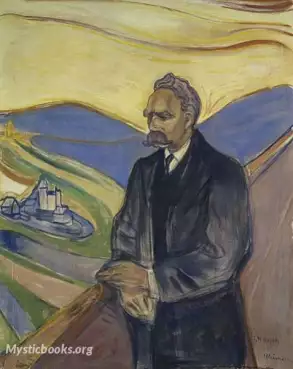
Friedrich Nietzsche
Germany
Nietzsche's writing spans philosophical polemics, poetry, cultural criticism, and fiction while displaying a fondness for aphorism and irony. Prominent elements of his philosophy include his radical c...
Books by Friedrich NietzscheDownload eBooks
Listen/Download Audiobook
Related books

Bible (ASV) NT 19: Hebrews by American Standard Version
The Epistle to the Hebrews (abbr. Heb for citations) is one of the books in the New Testament. Though traditionally credited to the Apostle Paul, the...
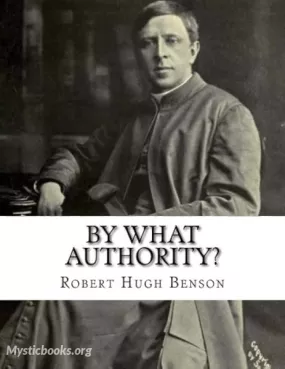
By What Authority? by Robert Hugh Benson
In a world where faith is tested and authority is challenged, one man must find his own path. Robert Hugh Benson's classic novel By What Authority? i...
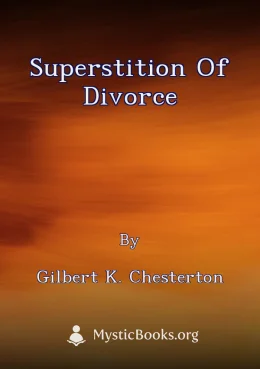
Superstition of Divorce by Gilbert K. Chesterton
In 'Superstition of Divorce,' G.K. Chesterton delves into the societal and moral implications of divorce, arguing against its increasing acceptance in...

Saga of Erik the Red (Reeves Translation) by Anonymous
The Saga of Erik the Red is a 13th-century Icelandic saga that chronicles the Norse exploration and settlement of Greenland and North America. It reco...
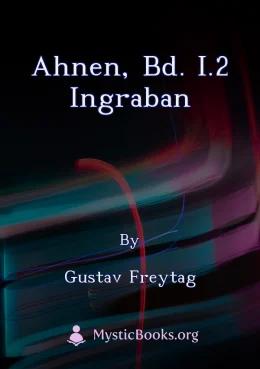
Ahnen, Bd. I.2 Ingraban by Gustav Freytag
The story is set in 8th-century Germany and follows the adventures of Ingraban, a young Saxon warrior. Ingraban is a brave and skilled fighter, but he...

Thomas Wingfold, Curate by George MacDonald
A young man (Thomas Wingfold) "enters the church" through no real faith and only for want of something to do. After an encounter with a brash young at...

Elsie's Widowhood by Martha Finley
Elsie's Widowhood continues the story of Elsie Dinsmore, a beloved character in American literature, as she navigates the challenges of widowhood afte...
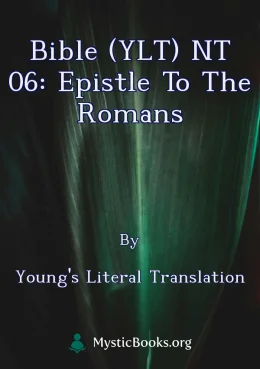
Bible (YLT) NT 06: Epistle to the Romans by Young's Literal Translation
The Epistle to the Romans is a letter written by the apostle Paul to the church in Rome. It is one of the most important books in the New Testament, a...

Commentary on the Gospel of John, Book 7 by Cyril of Alexandria
This book is a commentary on the Gospel of John by Cyril of Alexandria, one of the most important Church Fathers of the early Church. Cyril's commenta...
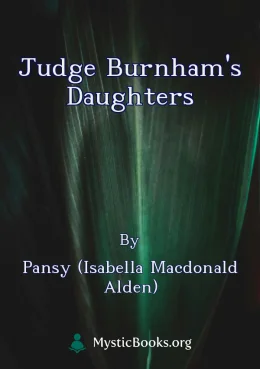
Judge Burnham's Daughters by Pansy (Isabella Macdonald Alden)
Ruth Erskine Burnham, the main character in "Judge Burnham's Daughters," is a woman of strong faith who has dedicated her life to raising her husband'...
Reviews for Thus Spake Zarathustra: A Book for All and None
No reviews posted or approved, yet...